Meet the Content Creators Coming for Games Publishers
A games publishing revolution is brewing, and content creators are leading the charge.
A new generation of games publishers is emerging.
Small boutique publishers like Hooded Horse (Manor Lords) are proving they can sell millions on Steam, and even smaller indie dev studios like Innersloth (Among Us) are getting in on the action, using cash surpluses from their own hits to fund new titles.
But then there are the most surprising new contestants: content creators.
With longtime YouTubers and streamers getting into the games publishing business, we wanted to take a look at the broader phenomenon of creator-led publishing and investigate whether this is the start of a trend that could meaningfully shake up the industry. So this week we spoke to Andre “Typical Gamer” Rebelo (CEO of JOGO), Mike “Sibs” Silbowitz (CEO of Mad Mushroom), Nick Allen (CEO of offbrand), Bryan Herren (Director of Publishing at offbrand games), and Callum Underwood (CEO of Uwu Biz) to find out more.
That story below.
First, this week’s news from the future.
News From the Future
💎 Squad Busters Nears Profitability, Teases 3rd-Party IP (GamesIndustry.biz)
In an interview with GI.biz, Supercell marketing exec Rob Lowe said that the studio’s latest hit Squad Busters is "quickly getting toward profitability." The game features characters from various Supercell IP, and Lowe says “there are also a ton of other third-party IPs that we're starting to look at as well."
🎮 Nintendo Impresses With Its Latest Direct (IGN)
Nintendo drew accolades on social this week for its latest Nintendo Direct showcase, which featured the first gameplay trailer for Metroid Prime 4, the reveal of The Legend of Zelda: Echoes of Wisdom starring a playable Princess Zelda, and the unexpected return of the beloved RPG series, Mario & Luigi: Brotherhood.
🥽 Report: Apple Suspends AVP 2 To Focus On Cheaper Model (Ars Technica)
Multiple sources working within Apple's headset supply chain told The Information (paywalled story here) that a cheaper version of the Apple Vision Pro is incoming in 2025, priced “perhaps around the $1,600 mark.” Meanwhile, the report says, the next high-end version of the Vision Pro has purportedly been canceled.
🤖 Microsoft Shakes Up Xbox as Key Exec Departs for Roblox (The Verge)
Xbox chief marketing officer Jerret West is leaving Microsoft to join Roblox as its new CMO and head of market expansion. According to an internal memo obtained by The Verge, the move will result in a shakeup for Xbox marketing’s structure, with the games division’s marketing now reporting up to Matt Booty.
Meet the Content Creators Coming for Games Publishers
Back in September of 2022, the longtime YouTube creator Dunkey announced a new venture: an “indie game publishing company” called BIGMODE. It was a headline that makes little sense if you take the “indie” label literally (a publisher for “independent” games?) but plenty of sense to the millions of Dunkey fans who have trusted his taste in games and relied on his reviews for years.
“Feels like a natural progression to the channel!” wrote one YouTube commenter.
On other platforms, particularly X (née Twitter), the commentary was more skeptical.
Experienced indie game developer Rami Ismail (Ridiculous Fishing, Nuclear Throne) took a more measured approach, but advised devs who take a publishing deal “from someone whose publishing qualifications are ‘I played lots of games’” to make sure to ask for more money upfront to off-set the risk of the publisher failing to support the game correctly.
“Good publishing is a relatively complex organisation,” Ismail wrote on X. “Selection, branding, marketing, production support, platform contacts, localisation connections, QA connections, release management—and to take pressure off of the dev those all need to fire correctly at the correct time.”
NoClip founder Danny O’Dwyer was also skeptical. “We gotta drop the naive shtick that having opinions on games is a qualification for understanding just about anything about development,” he posted.
Other commenters were willing to give the BIGMODE team a chance. After all, some argued, it’s not like the existing publishing ecosystem is filled exclusively with geniuses. As Jason Schreier put it in a tweet after the announce of BIGMODE:
But then, on May 9th of this year, the first BIGMODE published game, Animal Well, was released and the narrative changed overnight. The game itself received near-universal critical acclaim, but so did the work done by the BIGMODE team to promote it.
O’Dwyer took to X for a mea culpa: “I think they did a great job,” he wrote. “It was a smart signing first of all, but I kept seeing it at conventions, and the preview/review code comms were well handled. Dunkey also didn’t OVERLY promote the game on his channel. My initial (I think valid) concerns have been put to rest… You’d never have known it was their first. The work they as publishers did was great. Fair play to them.”
What Developers Look For In A Publisher
Callum Underwood has helped publish dozens of games. After leading EU developer relations at Oculus and working as a publishing scout for Raw Fury and Kowloon Nights, in recent years he’s helped numerous content creators (including the BIGMODE team and Yogscast Games) set up gaming funds and publishing operations.
Underwood believes that the industry shouldn’t underestimate upstart publishers like these. “You don't need 10 years of experience to be able to ship stuff on platforms,” he says. “You just need to hustle a bit, and try hard, and learn, and that's very much what the BIGMODE team did.”
And, in some ways, smaller publishers like BIGMODE have serious advantages over larger operations: “They don't have shareholders,” Underwood says. “They don't have a whole, big team that they have to manage, so they don't need to go and create a content mill of signing games every three months to keep revenue coming in.”
But this isn’t the only advantage that upstart publishers have. In fact, Underwood says, traditional publishers are ripe for disruption due to an outdated approach to publishing. “There are a whole bunch of s*** publishers out there,” he says, “and a lot of those have been offering pretty bad deal terms, like 90s style deal terms. I've seen deals recently where the publishers are getting more than 70% way after recoup. It never gets better for the developer than 30% of revenue, which is not how publishing should be.”
Underwood says that the real reason most of these bad publishing deals get signed is simply because developers desperately need money upfront to fund their games. “I’d say 80% of the time, these publishers are getting picked because they have money to give and because they say yes,” he says.
Beyond funding, of course, devs are mostly just looking for support: help with localization, submissions to platforms, and submissions to award shows. And after funding their game and actually creating it, the biggest challenge most developers face is marketing—making literally anyone outside of direct connections aware that the game exists.
That’s where a marketing-savvy publisher like offbrand games comes in.
The Power of a Creator-Led Brand
Bryan Herren, Director of Publishing at offbrand games (yes, it’s styled in lowercase), says that in many ways, it’s never been easier to publish a game.
“The normal barriers on Steam or on any other platform are a lot lower than they used to be,” he says. But other aspects of the games business have gotten tougher: “It's busier than it's ever been” in terms of game releases, “so marketing is more valuable than it's ever been for indie games. And that's where we can add value for developers, in terms of leveraging the power of content creators.”
The new offbrand games label was revealed just last week, when popular streamer Ludwig Ahgren announced he was partnering with Jason "Thor" Hall, founder of indie studio Pirate Software, to start a games publishing spinoff of the existing offbrand label. Both creators have millions of subscribers on YouTube and regularly livestream to large audiences. Ludwig in particular has produced widely-viewed events like Chessboxing, video game speedrunning, and even a content-creator focused dodgeball tournament. He has a flair for drawing eyeballs and entertaining viewers.
Nick Allen, CEO and Co-founder at offbrand, says that the motivation for all of this comes down to Ludwig and Pirate Software wanting “to publish awesome games.” But there’s also a strong desire to do something good for the industry as a whole by offering better deal terms for developers.
“We've seen a lot of predatory practices in the space,” Allen says. “We were all in agreement that we could do it a different way. It could be a lot more favorable to the developers.”
One example Allen gives is IP rights. “We really want the developers to own and be able to fully exploit the IP and the things that they've created,” he says.
Another aspect of bad publishing deals that the offbrand games team wants to avoid are those that extract rights and revenue from devs far beyond the period when the label is actively supporting their games. “Perpetuity is a big one,” says Herren. “It's not that we would never sign a deal in perpetuity if it made sense, but for a lot of games you're signing away revenue for forever and for a lot of publishers the value that they're providing is at launch and within a couple of years after launch.”
Ultimately, says Allen, “We're trying to focus on where we add value directly, and us as publishers benefiting from that… not everything outside of that.”
To their credit, the offbrand team do seem to be unusually sincere about wanting to share the value they’re creating. The announcement of the new games label came just a few days after the announcement that offbrand itself had transitioned to a worker co-op, owned by its employees, who’ll split its future profits evenly.
The Fortnite Streamer Dominating UEFN Charts
Andre “Typical Gamer” Rebelo is one of the biggest Fortnite-focused content creators on YouTube, with over 14 million subscribers. So it was natural, perhaps, that when UEFN (Unreal Engine for Fortnite) was released, he jumped at the chance to make his own map. After all, what better way to get content?
His first release, called Fort Nut, was a hit, due in no small part to how elaborate it was—Rebelo says he spent more than 200 hours working on the map, which looks like a supersized backyard.
At the peak of its popularity, Fort Nut had nearly 8,000 players concurrently—more than many popular full releases on Steam.
But its success was dwarfed by Rebelo’s later releases. OnlyUp Time Travel peaked at 20,000 CCU, and his most recent map, Super Red Vs. Blue, hit 80,000 CCU. According to UEFN stats website Fortnite.gg, Rebelo is now ranked as the #6 most popular map creator on the platform.
The true scale of Rebelo’s investment in UEFN was fully revealed in May—over the last year Rebelo, together with co-founders Chad Mustard (brother of former Epic Games Chief Creative Officer Donald Mustard) and Mark Price, has been quietly putting together JOGO, a full-fledged game studio with 20 full time employees, to develop UEFN titles.
Rebelo, as JOGO’s CEO, says that combined their maps have reached over 50 million unique players. He says that it only makes sense for creators like himself to jump creating and publishing UEFN maps, particularly if they have a popular channel with which to reach Fortnite players.
“A lot of companies’ main problem is marketing,” Rebelo says. “There are lots of people who have released maps that are quite good, but they just don't get to see the light of day. So as one of the bigger Fortnite creators, sharing our games with large audience ensures visibility and plays. We're being very intentional on how and when we mobilize my audience.”
Sidebar: OTK Media’s Mad Mushroom On Their Approach to Publishing
When thinking about content creator-led publishing, one of the first groups that comes to mind is OTK Media (the creator-owned organization founded by Asmongold, Mizkif, And Esfand) and its games publishing label, Mad Mushroom.
The tight collaboration between OTK’s cast of streamers paid off earlier this month during the OTK Expo, a games showcase that earned hundreds of thousands of viewers and which featured four Mad Mushroom games alongside many others.
We reached out to Mad Mushroom CEO Mike “Sibs” Silbowitz to ask him about their strategy. A snippet of that conversation follows:
A16Z GAMES: A lot of different ways of funding game development that differ from traditional publishing models have popped up over the last 15 years—I'm thinking of Kickstarter, Steam Early Access, and even VC. How does Mad Mushroom’s approach compare to the traditional publishing model, and how do you position yourself strategically among all the other options?
MIKE “SIBS” SILBOWITZ: Kickstarter and VCs have provided unique alternatives to publisher funding, bootstrapping, and everything in between. The first part of our differentiation is when we enter the equation: we are a late-stage indie video game publisher. This means we seek out games later in the development lifecycle and evaluate them from the lens of an almost complete creation that can potentially hit stardom with the right partnership, support, and the deep knowledge and direct feedback of some of the biggest creators in the world.
We strongly believe that there are literally thousands of indie games released each year, amazing artistic creations, that never get the discoverability they deserve. Visibility can be expensive, and this is a major challenge for any independent developer. A game published by Mad Mushroom is intended to be great to play and great to watch.Our approach also includes developer-friendly publishing agreements that prioritize long-term collaboration and mutual success. We believe in fair and transparent deals, ensuring developers retain control over their creative process while receiving equitable terms. This fosters trust, goodwill, and sustainable business relationships. We’re so committed to transparency that you can actually go to our website right now and review the publishing agreement we offer to devs.
Creative control stays with our developers. They are the final say on their creative vision. This does not mean that Mad Mushroom and the OTK creators are not providing feedback throughout the development and publishing process. That feedback is provided to the development team, and they can say “no” to pretty much all of it if it conflicts with their creative vision. We don’t recommend that, as it is one of our greatest strengths as a publisher…but they could. For us it’s about fostering the studio’s creative vision to its maximum potential.
We also recognize the power of gaming influencers and media platforms in reaching and engaging with players. Mad Mushroom leverages top gaming influencer platforms to bring visibility to games at zero cost to developers. By onboarding influencers as partners, we tap into their loyal and engaged audiences, effectively promoting indie games and increasing discoverability among players.
Through our collaboration with influencers, we utilize OTK Media's game-endemic programming to efficiently promote indie games. These influencers possess a deep understanding of what makes games fun to play and marketable to their audience. By working closely with influencers, we can more accurately predict the success margin of games and ensure effective marketing campaigns that resonate with players.
Finally, we understand the importance of building a thriving gaming community. Mad Mushroom, alongside OTK Media's talented content creators, brings developers closer to their community. By organizing playtests, gathering direct feedback, and fostering an engaging and collaborative experience, we help developers strengthen their bond with players and create games that truly resonate with their audience.
—Mike “Sibs” Silbowitz, CEO of Mad Mushroom
Rebelo says his connection with his community has also proven to be an advantage, as he’s able to reach lots of his audience to get their feedback so JOGO can make their maps even better. Now when he’s streaming, Rebelo says, “People are like, Oh, ‘can you play your map instead of what you're doing now?’ And I'm like, oh, that's pretty sweet!”
The JOGO team has been pushing the limits of the UEFN ecosystem, adding persistent ranks and leveling systems to their maps, along with achievements. With so many players continuing to play their maps, Rebelo says the revenue coming from Epic’s generous rev-share program has been enough to cover costs and fund the development of even more ambitious maps. “If you are one of the top maps, it can be quite profitable,” he says. “I want to spend every single dollar we’ve made to make even better games.”
And, Rebelo says, the ultimate goal for JOGO would be to explore even beyond the UEFN ecosystem, whether that’s other UGC platforms or even a more traditional games platform like Steam. “As someone who absolutely lives and breathes games, I’d just like to make a game that resonates with people 20 or 30 years later,” Rebelo says.
Let A Thousand Flowers Bloom
When we spoke with Callum Underwood, he was celebrating the recent announcement of Outersloth, the new games fund from Among Us creators Innersloth, which he helped launch.
“Anybody could fund and publish games,” he says, “whether you're a game developer or a creator, so long as you have the funds to be able to support it. You could be like ‘I'm gonna put a million dollars over the next three years and fund small little things.’ I think more people should just do it, because fresh blood in the industry is constantly needed.”
“You're gonna get pushback from industry people just as much as you would going into any industry,” he says. “Ignore it. It's dumb. I think as long as you're treating developers with respect and you're making a proper go of it—in the same way that you make a proper go of your own career—then I think it’s great and more people should do it.”
🤖 Hedra Launches Image-to-Video Character Creator
A16Z GAMES SPEEDRUN participant Hedra wowed with the launch of its AI-powered foundation model for character creation. Our own Troy Kirwin had a lot of fun creating a pic-to-video message using the tech.
⚔️ Pax Dei Launches in Early Access
The epic MMO Pax Dei, from A16Z GAMES-backed studio Mainframe launched in Early Access this week. It’s a next-generation, social sandbox MMO with a fully player-driven economy. You can check it out now on Steam or its official website.
🏆 More From A16Z GAMES
Introducing Win Conditions, a new interview series from A16Z GAMES. In our first episode, Lester Chen interviews Ben "Cohh Carnage" Cassell, one of gaming’s most respected streamers.
Cassell balances a deep passion for games with his family, a myriad of game dev projects, and a community of thousands who he broadcasts to daily.
Enjoy the full interview below:
💼 Jobs Jobs Jobs
There are currently over 100 open jobs listings across both the A16Z GAMES portfolio and our SPEEDRUN portfolio. For the freshest games industry jobs postings, be sure to follow our own Caitlin Cooke and Jordan Mazer on LinkedIn.
Join our talent network for more opportunities. If we see a fit for you, we'll intro you to relevant founders in the portfolio.




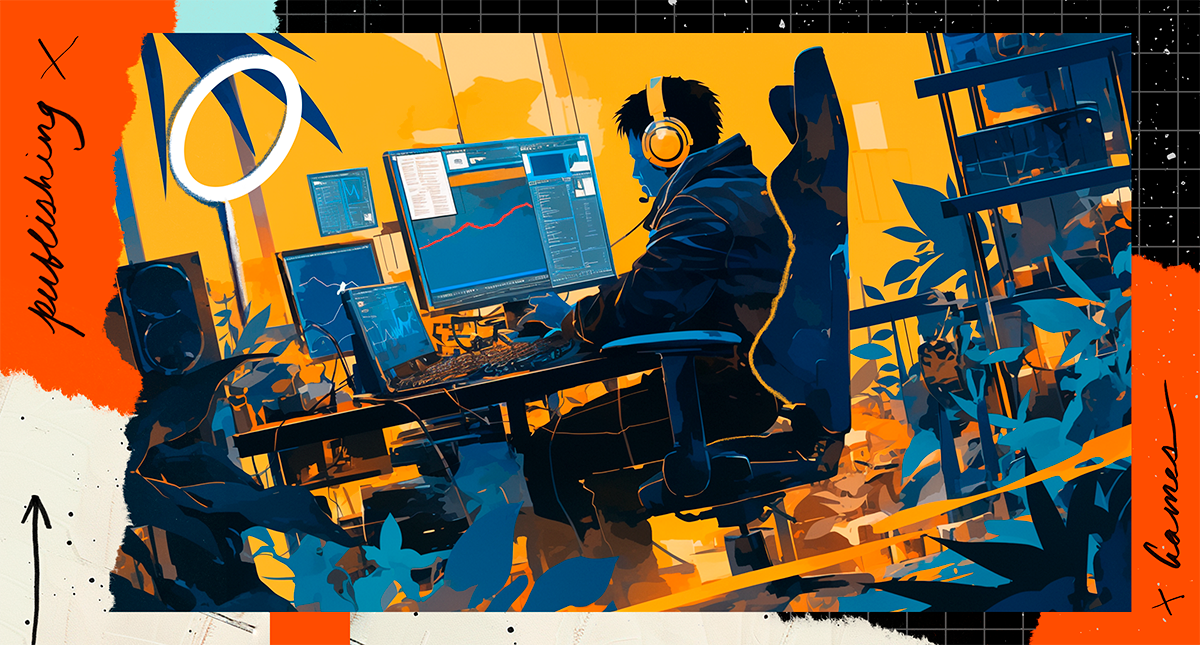

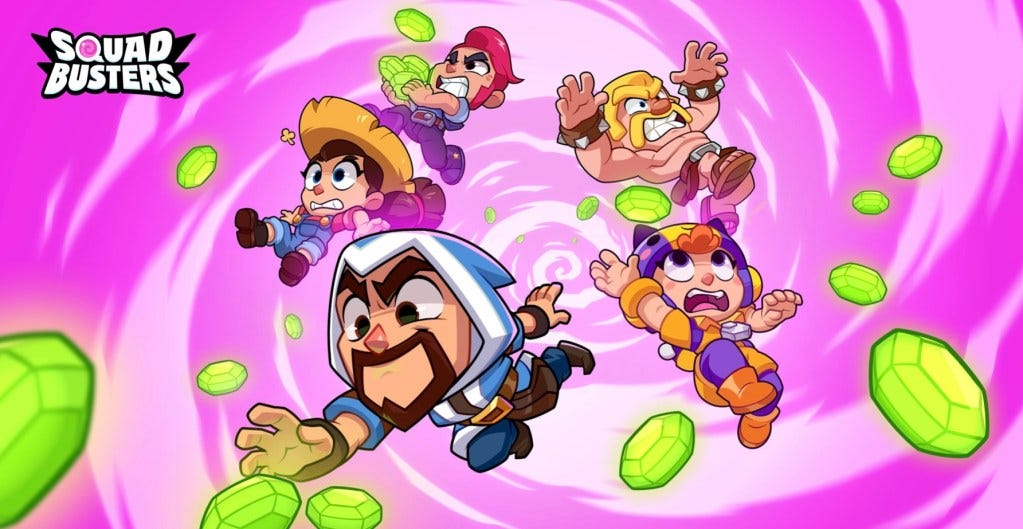
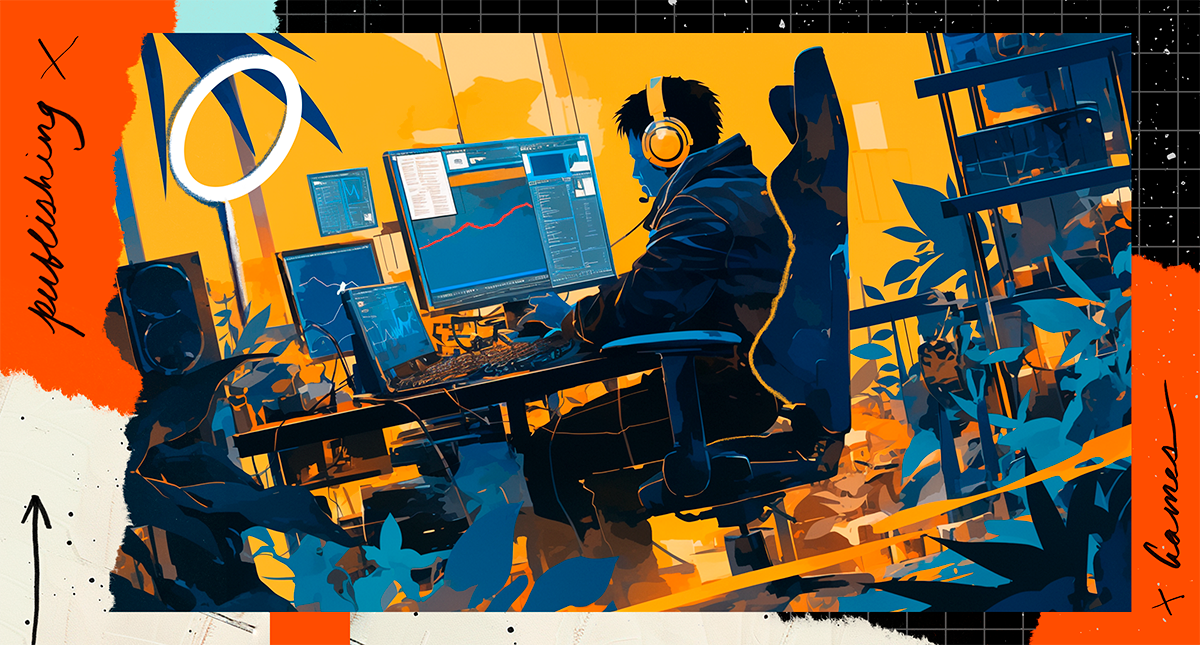
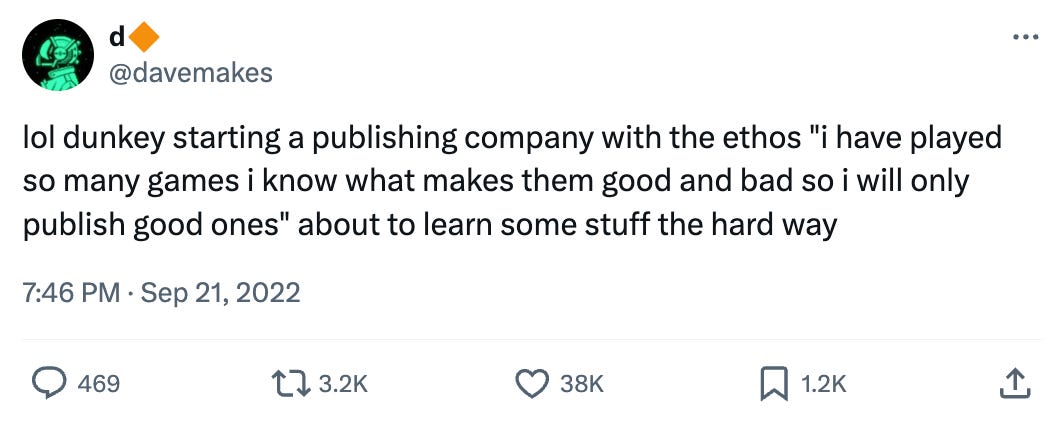
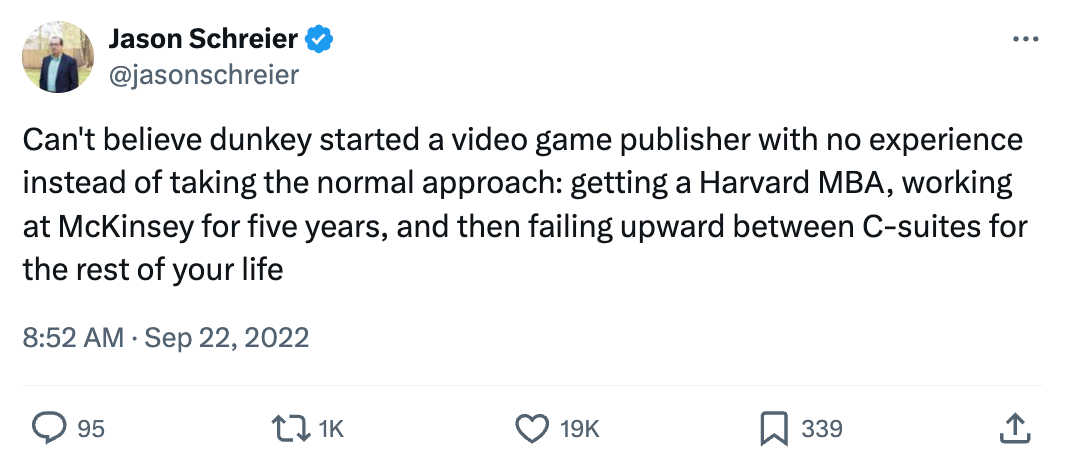

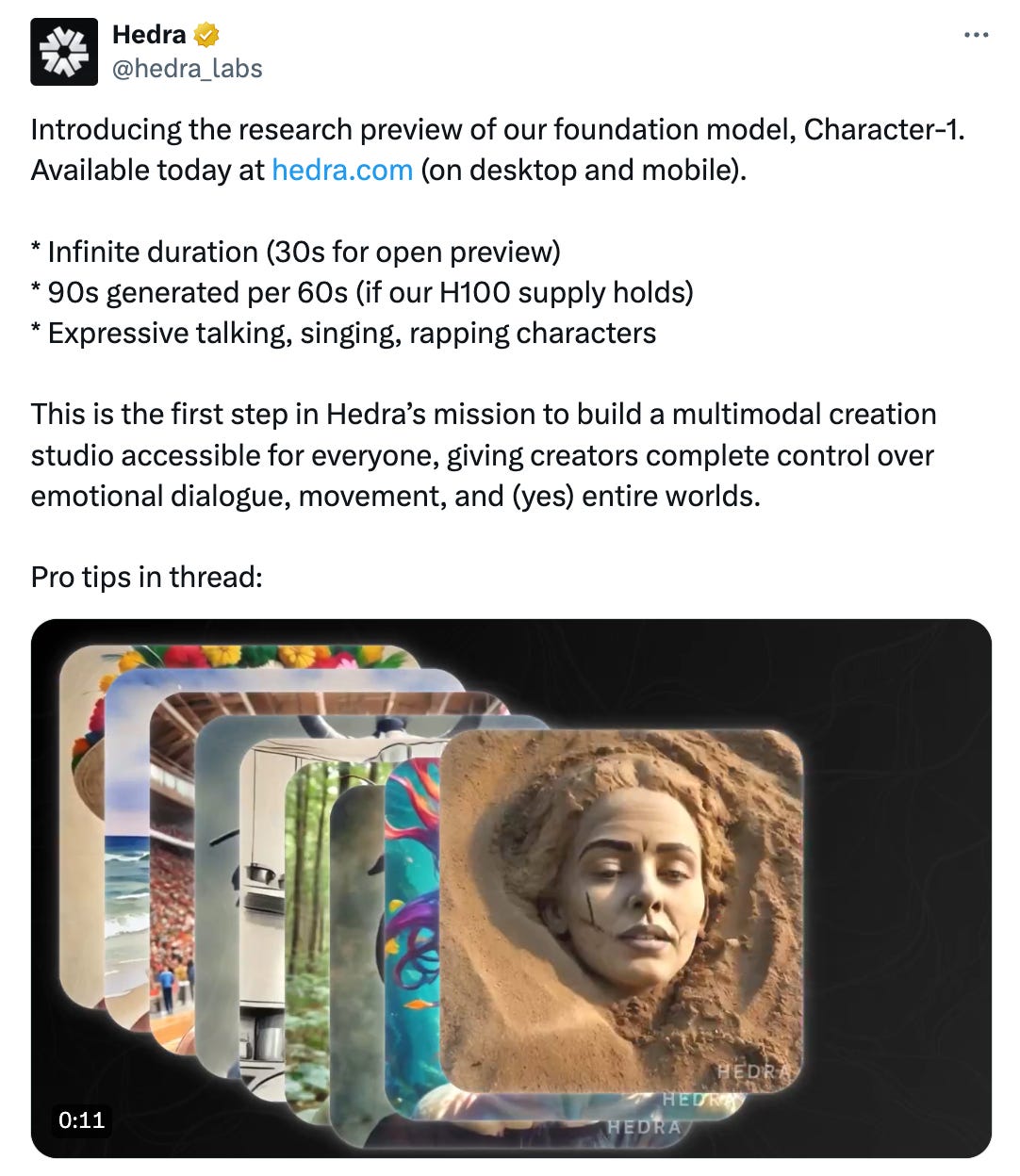
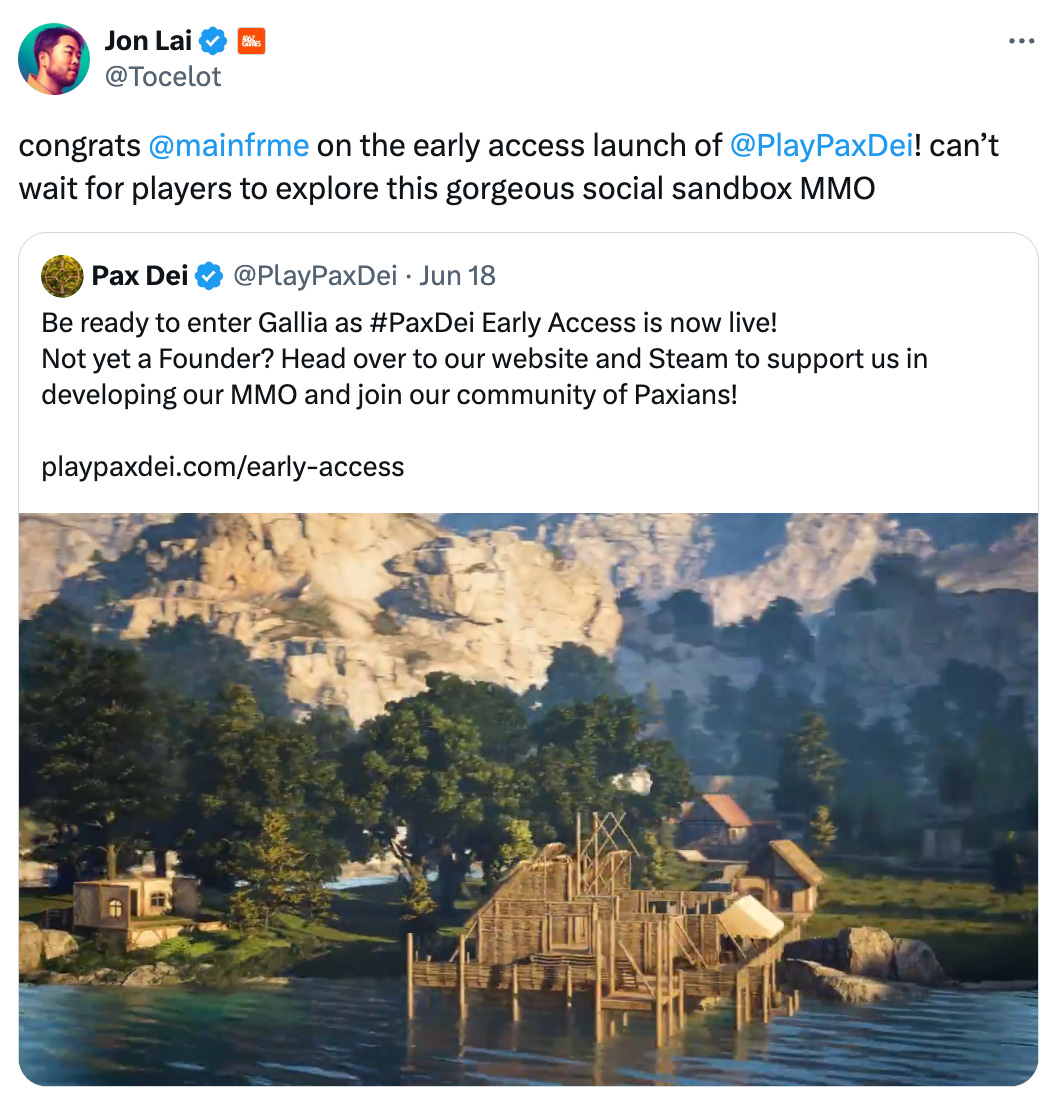

I hope it's alright to share links here. If you're someone who's looking to find those upstart publishers we help with that: https://whalepass.gg/discover.games
Off the games topic, but about creators. Storytellers1
Top movie: Inside Out 2. Why? Because of animation and emotional connection with characters.
Now imagine millions of everyday people who need to but can't express themselves orally, or by text. But dynamic visual storytelling. On your smart device. For whatever cause. Even gaming.
Imagine millions of people as their own creators expressing themselves in ways they can't imagine until they are given the tools to do so. A forevermore journey. And they are now the owners because of Web3.
I had this vision of a future world 14 years ago. I now own the patent on it and others on mobile, the next frontier of creative content generation. Now throw in responsible Gen AI.